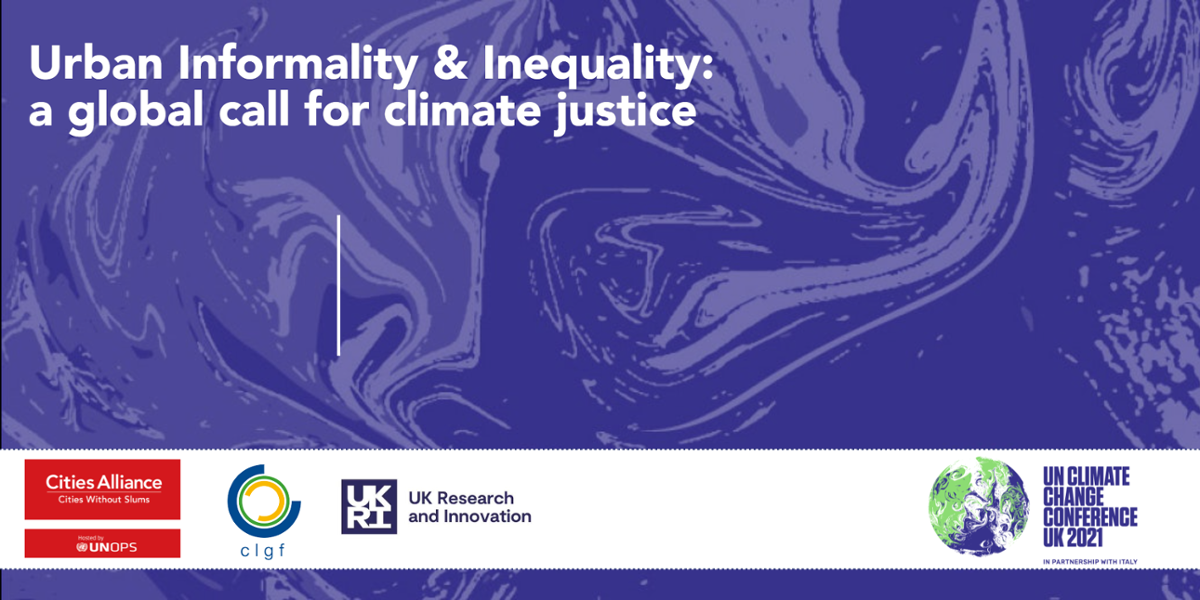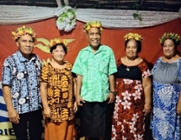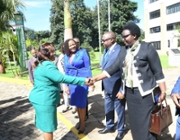CLGF at COP26: local government for climate change

30 October 2021
Local government and communities are on the frontline when it comes to the damaging impact of climate change. They must also be at the heart of the solutions and actions to create resilience and ensure preparedness. With this in mind, CLGF will be at COP26 to ensure the voice of Commonwealth local government is heard.
Hybrid event
COP26 is the 2021 United Nations climate change conference. Hosted by the UK in partnership with Italy, the conference takes place in Glasgow, from 31 October to 12 November 2021. During COP26, the Commonwealth Local Government Forum (CLGF) is joining with Cities Alliance and UK Research and Innovation (UKRI) to host a session on the nexus between climate resilience and urban poverty and informality. The event will take place on Tuesday 2 November at 10:00 AM (Glasgow time) in the public-facing Green Zone - Tower Base North. It will also be available to join online for those not attending in person.
Locally led response
The recent COVID-19 crisis made clear how interconnected global health, social, economic and environmental challenges are and the way that structural inequalities can exacerbate their impact. It forced many to acknowledge the immediate need for a locally-led response and to better prepare people – especially the most vulnerable – and the planet for future pandemics and climate impacts.
The bulk of the demographic growth is predicted to happen in secondary cities of the global south, in informal, poorly planned, neighbourhoods. In reality, in many countries of the Commonwealth. By 2050, this will lead to a doubling of the total population living in informal settlements.
Cities are central to the delivery of the climate commitments of the Paris Agreement and Sustainable Development Goals. Ensuring climate justice for the urban poor, who are at the front line, will be critical to their well being and livelihoods.
However, examples of integrated policies of urban planning and management, centred around local climate risks and the lives of the urban poor are in place, they still require significant leverage.
How to take part and register
This session on Urban informality & inequality: a global call for climate justice will allow to share cross-sector perspectives on the challenges of addressing climate change equitably in cities. The main purpose of the event is to help shape critical policy and research priorities towards climate justice and raise awareness about the cumulative risks created by conditions of urban informality, inequality and climate vulnerability in developing effective responses to climate change.
The panel discussion will revolve around three core questions:
- How should we strengthen climate change action to achieve climate justice by taking account of urban informality and inequality, alongside climate change vulnerability?
- What are the priorities for action at the local level?
- How can we strengthen equitable engagement between policy makers, researchers and marginalised communities to achieve climate justice?
Keynote speech:
CLGF is delighted to announce that the keynote will be given by a City Mayor:
- Yvonne Aki-Sawyerr, Mayor of Freetown, Sierra Leone.
Contributors:
- Joanes Atela, Convener Africa Research and Impact Network, Director Partnerships African Centre for Technology Studies, Kenya
- Harriet Bulkeley, Professor of Geography, Durham University, UK.
- Vanesa Castan Broto, Professor of Climate Urbanism, University of Sheffield, UK
- Sonia Dias, Waste Specialist, WIEGO, Brazil
- David Dodman, Director, Human Settlements, International Institute for Environment and Development, UK
- Aníbal Gaviria, Governor of Antioquia, Colombia and President of Cities Alliance
- Heike Henn, Deputy Director General, Federal Ministry for Economic Cooperation and Development, Germany
- Rubbina Karruna, Regional Cities & Infrastructure Adviser, Foreign, Commonwealth and Development Office, UK
- Rose Molokoane, National Coordinator of the Federation of the Rural and Urban Poor, Affiliate of Slum Dweller International (SDI) and one of the SDI’s Founding Leaders, South Africa
- Greg Munro, Director, Cities Alliance (Chair)
- Aromar Revi, Director, Indian Institute for Human Settlements, India
- Emilia Saiz, Secretary General, UCLG on behalf of the Global Taskforce of Local and Regional Governments.
Around the world, storms, floods and wildfires are intensifying. Air pollution affects the health of tens of millions of people and unpredictable weather causes untold damage to homes and livelihoods too. The devastation of climate change is felt particularly severely in many parts of the Commonwealth, including Small Island Developing States (SIDS) which constitute much of the membership. These are places that have contributed the least to the planet’s destruction, and yet suffer disproportionately with the loss of life, damage to infrastructure and impact on the economies and livelihoods of these countries for generations. While the impacts of climate change are devastating, advances in tackling it are leading to cleaner air, creating good jobs, restoring nature and at the same time unleashing economic growth.
Despite the opportunities, action is not taking place quickly enough. Countries need to join forces urgently. COP 26 will be an opportunity to finalise the detailed rules that make the Paris Agreement operational and accelerate action to tackle the climate crisis through collaboration between governments, businesses and civil society. This is particularly important in terms of committing finance to tackle climate change, and going beyond declarations and policies to embark on concrete actions.
For those countries most vulnerable to the impacts of climate change who are already seeing their homes disappear under water and their crops decimated by drought - COP26 simply can’t be another talking shop.
Alok Sharma, COP26 President
COP26 Goals
- Secure global net-zero by mid-century and keep 1.5 degrees within reach;
- Adapt to protect communities and natural habitats;
- Mobilise finance and work together to deliver.
Back to News





